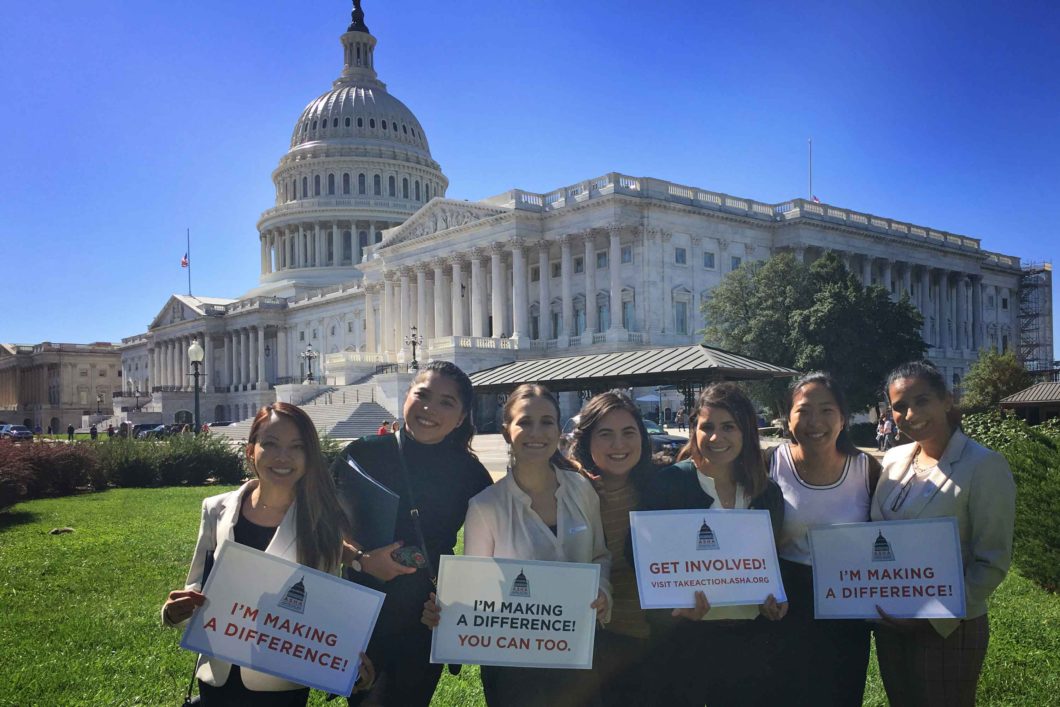Walking into Senator Feinstein’s office on Capitol Hill was one of the most heart-palpitating moments of my academic career. My only experience with advocating was through NSSLHA’s annual Virtual Advocacy Day. Never had I advocated in person before—let alone at the federal level!
But last fall, I traveled to Washington, D.C. with a group of six other students from my school, California State University, Fullerton. None of them had experience advocating either, so it was a daunting, yet exciting opportunity for all of us!
Prepping Was Key
The morning of our scheduled meeting with Senator Feinstein, ASHA’s Advocacy Team provided us with information and issue briefs about several issues we could advocate for. I chose to focus on the repeal of Medicare therapy caps. The issue briefs gave me exactly what I needed to know about ASHA’s stance on the issue and what my talking points should be. Talk about a life saver!
I also thought about a personal story to share with the talking points. This was going to be the most crucial part of the entire meeting. It would show why the issue is so important and why it should be supported!
The Big Day
It was time to meet with Senator Feinstein’s legislative aide—my nerves were out of control! I didn’t know what to expect or if I’d do a good job conveying my position about the repeal of Medicare therapy caps. It was like my first day of college—I was prepared, but still felt those frantic freshmen nerves.
So, there we were—face-to-face with Senator Feinstein’s legislative aide. I’d done my research—I felt ready! I explained the background of the issue and shared my anecdote:
Medicare therapy caps not only affect the quality of life for underrepresented populations, but for their caretakers as well. A lack of services affects different aspects of a patient’s life (e.g., loss of income, lifetime expenses, disruption of family life, etc.). All of which impact the caretaker’s quality of life too.
At the end of the meeting, the aide thanked us for taking the time to represent our future profession and said he would notify Senator Feinstein about our issues—success!
Another Chance for Us All to Advocate
With Virtual Advocacy Day coming up on March 13, we all have another exciting opportunity to advocate for our future professions. So, how do you know what to advocate for? That’s easy—what’s most important to you? Don’t go into advocacy thinking you have to advocate for every issue under the sun. Pick one that speaks to you!
I chose the Medicare topic because it had an actual piece of legislation being discussed by both the Senate and the House—very relevant and timely for Senator Feinstein! That said, it’s okay if there’s an issue that speaks to you but doesn’t have a legislative piece attached to it yet. What’s important is that we speak up for our professions and ask our elected officials to keep us in mind when considering legislation.
Advocating might seem like a frightening experience, but there’s something empowering about getting out of your comfort zone and advocating for an issue you’re passionate about. It’s unlike any other experience I’ve had, and it really gave me an unparalleled understanding of how critical my voice is, especially within my field of speech-language pathology.

